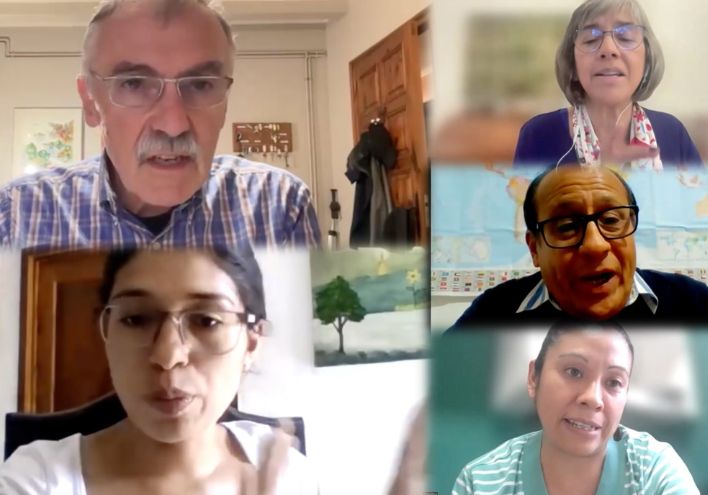Whose Knowledge Is It?

On September 26th, 2024, ATD Fourth World and Equity for Children (a project run by The New School in New York City, USA) jointly organized a webinar to discuss “De Quién es el conocimiento: Emancipación, Cruce de Saberes y Lucha contra la Pobreza” (“Whose Knowledge Is It? Empowerment, the Merging of Knowledge, and the Fight to End Poverty”) published by ATD Fourth World.
The webinar brought together a wide range of people, including academics, professionals that work with people in poverty, and people with lived experience of poverty. The goal was to not only to celebrate the book, but also create a space for reflection and exchange and ultimately analyses the ethical, academic, and financial challenges of democratizing knowledge in institutional and cultural spheres. Participants shared experiences developed, in part from the Merging of Knowledge approach, and explored the relevance and usefulness of processes that ensure genuine participation of everyone.
Difficulties in bringing participatory research approaches to the fore
For almost a century, attempts have been made in academic and research fields to develop approaches to democratize knowledge production. However, as noted during the webinar by Davyd Greenwood, a distinguished Professor Emeritus of Arts and Sciences in Anthropology from the University of Cornell with more than 30 years experience developing and promoting participatory processes in academia.
“Participatory processes have been relegated to marginal spaces both within academia and in society. Part of this, is due to society and academia’s inability to unite different experiences and develop contexts that allow exchange and collaboration. Instead, there seems to be tendency to trivialize participation and silence the voices of those without academic or professional backgrounds in research fields, which is symptomatic of the deep limitations of current epistemological approaches in research.”
Davydd Greenwood
Merging of Knowledge and radical epistemology
Epistemology is the theory of knowledge, and looks at the origins, methods, and limits of human knowledge. Radical epistemology pits itself against current norms of epistemology. It objects to many of the principles and assumptions of modern epistemological ideas — particularly those around the hierarchies of knowledge.
During the webinar, ATD Fourth World Volunteer Corps member Alberto Ugarte gave an introduction to the Merging of Knowledge approach, presenting it as an act of radical epistemology as it seeks to establish a dialogue and exchange of knowledge between people with lived experience of poverty and academics and professionals who work with people in poverty such as social workers and teachers. In doing so, Merging of Knowledge echoes the fundamental goal of radical epistemologies, which is to question hierarchies of knowledge and recognize that different forms of knowledge and experiences must be taken into account if we are to truly transform the realities of injustice and oppression.
To illuminate the opportunities the Merging of Knowledge approach presents, the webinar also presented research conducted by ATD Fourth World Volunteer Corps member Soledad Ortiz and ATD Fourth World activist Roxana Quispe. The research, conducted using Merging of Knowledge in Bolivia, explored the topic of violence against women in poverty. Their presentation provided a description of the three-stage methodological process used that resulted in the co-construction of new knowledge, enriched by the vision and experience of each participant.
Ultimately, the webinar provided an opportunity to explore the value of the Merging of Knowledge approach as a participatory process that seeks to democratize the production of knowledge. The Merging of Knowledge approach not only creates spaces that facilitate the co-construction of knowledge, but also — at a personal level — ensures that the knowledge and voices of participants with non-academic or professional backgrounds are heard and valued.

